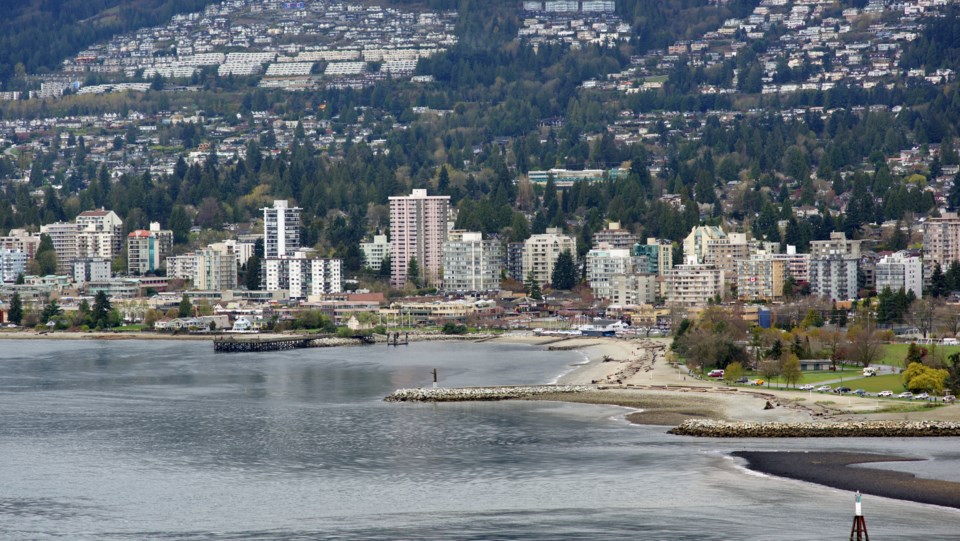If you were given the task of launching a shopping mall today, it’s doubtful you’d select Caulfeild Village as first choice for the site.
On paper, at least, it makes little sense. Terrible public transit access. No high-rises nearby for walk-up traffic. No houses within eyesight. Not even an easy trek for the cyclist. It’s tucked away near an offramp from the Upper Levels highway amid winding roads stitching together single-family detached homes.
Yet there it is, surviving in seeming isolation, a testament to West Vancouver’s proud dependence on the vehicle. Convenience has become it. The parking lot is mostly full most of the time, there for what the plaza calls when you Google it “a practical group of stores”– anchor tenants in Safeway, a Pharmasave, a Signature BC Liquor Store, Subway and BMO, medical, dental, optometry and veterinary clinics, then smaller and more convivial outlets for dry cleaning, fish, meat, men’s and women’s clothing, sushi, coffee, mortgages, framing and spa treatment.
They’re the stop-by stores and shops.
It can be argued that for four decades the actual community of the mall has been orchestrated by Pastameli, a meeting place as much as an eating place. It has been the Cheers of Caulfeild, where everybody (eventually) knows your name. Ask about its clientele and you’d learn that about 85 per cent are regulars.
Suddenly last month, it shockingly shuttered.
Colin and Kim Taylor had nurtured Pastameli through a decade recently punctuated by the pandemic restrictions, the tragic passing of its chef, and labour shortages that saddled them with unworldly hours. Think 16-hour days – a “nightmare,” Colin says.
Over the years they had treated their employees to summer camping trips and helped them find housing. “It was a family,” they both say.
When they could not reconcile their deal with the Warrington PCI Management, they decided it was time to move on. New operators will move in early in 2023 to confront the same challenges.
“Small business is hard,” Kim says.
“The real story is housing,” Colin adds.
Indeed, the lack of affordable housing to supply accessible labour is a real story for West Vancouver’s restaurants, as it is for all of our merchants. The housing scarcity that impedes the emergence of locally available labour, and the fruitless quest for solutions, provides West Vancouver with arguably its most significant socio-economic challenge.
The district is not unique in this regard, but our statistics are some of the most harrowing. Three-quarters of the people who work here don’t live here, and only about one in 10 of our municipal staff does.
Given their scale, smaller businesses have little wiggle room to pay above-market wages, so reduced operating hours are the new normal. The pandemic and the recent spurt of inflation only amplified the problem, as did the inertia of recent councils to approve developments to attract and retain workers.
No politician would like to concede the problem is too large, because no politician wants to give off the whiff of hopelessness. But it is worth considering if it’s too late to address the condition with housing stock alone.
When an Airbnb room can fetch three figures a night, when rents consume oversized portions of wages, when construction costs and land values mean only large buildings can yield even meagre numbers of rather tiny residential units many years into the future, are we too far gone in the game to make a material shorter-term difference?
At the very least, we need to examine different municipal incentives. We need to recognize, too, that workers have found more space beyond what West Vancouver can provide their families – most aren’t going to live here in these circumstances, but they need more help to be here for work.
It was noteworthy that the Isetta Café Bistro on Marine Drive provided its staff with Compass cards when it opened this year. Council ought to explore further short-term steps: perhaps that staff in our important service sector be given free public transit, even vehicle allowances, to work here. The cost would hit property owners because the district depends mainly on that revenue stream. Regardless, whatever we are doing isn’t working in a prosperous community that can’t afford not to retain the out-of-towners to serve the in-towners.
Kirk LaPointe is publisher and editor-in-chief of BIV as well as vice-president, editorial, Glacier Media Group, the North Shore News’ parent company. He is also a West Vancouverite.



